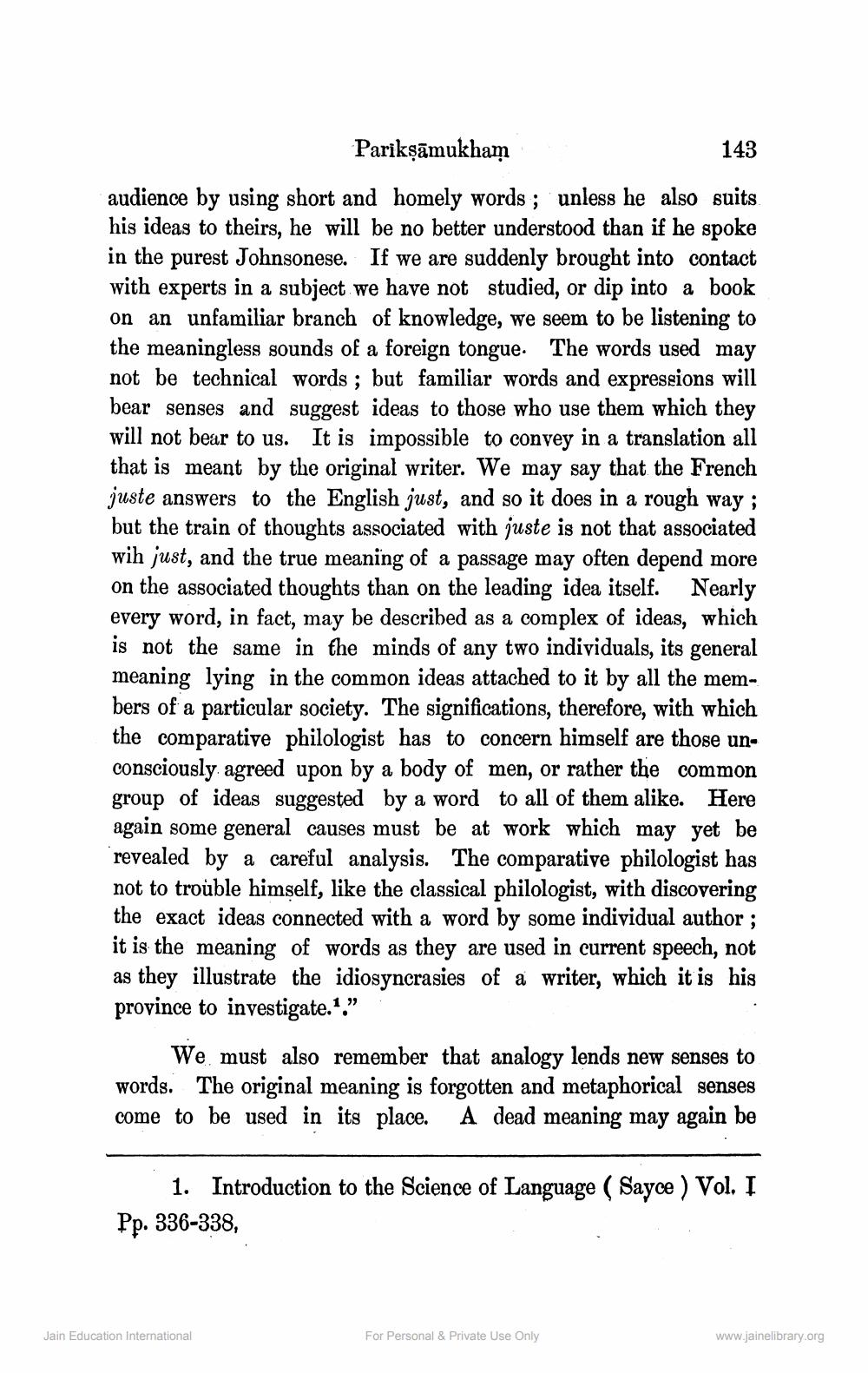________________
Parikṣāmukham
m
143
audience by using short and homely words ; unless he also suits his ideas to theirs, he will be no better understood than if he spoke in the purest Johnsonese. If we are suddenly brought into contact with experts in a subject we have not studied, or dip into a book on an unfamiliar branch of knowledge, we seem to be listening to the meaningless sounds of a foreign tongue. The words used may not be technical words ; but familiar words and expressions will bear senses and suggest ideas to those who use them which they will not bear to us. It is impossible to convey in a translation all that is meant by the original writer. We may say that the French juste answers to the English just, and so it does in a rough way; but the train of thoughts associated with juste is not that associated wih just, and the true meaning of a passage may often depend more on the associated thoughts than on the leading idea itself. Nearly every word, in fact, may be described as a complex of ideas, which is not the same in the minds of any two individuals, its general meaning lying in the common ideas attached to it by all the members of a particular society. The significations, therefore, with which the comparative philologist has to concern himself are those unconsciously agreed upon by a body of men, or rather the common group of ideas suggested by a word to all of them alike. Here again some general causes must be at work which may yet be revealed by a careful analysis. The comparative philologist has not to trouble himself, like the classical philologist, with discovering the exact ideas connected with a word by some individual author; it is the meaning of words as they are used in current speech, not as they illustrate the idiosyncrasies of a writer, which it is his province to investigate."."
We must also remember that analogy lends new senses to words. The original meaning is forgotten and metaphorical senses come to be used in its place. A dead meaning may again be
1. Introduction to the Science of Language ( Sayce ) Vol. I Pp. 336-338,
Jain Education International
For Personal & Private Use Only
www.jainelibrary.org




